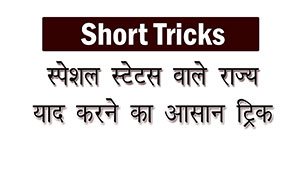-
Quantitative aptitude preparation for IBPS Clerk
Updated : 30-Jun-2017
Quantitative aptitude test in IBPS clerk exam refers to the mathematical part of the banking entrance test. This is the most important part of this examination as banking is mostly related to mathematics. Most of the aspirants miss the banking job because scoring less or not passing in this section. So today we will dig deeper into Quantitative aptitude preparation for IBPS Clerk exam.
IBPS Clerk Exam - Type of Quantitative questions
Question type Number of questions Arithmetic Questions ( Percentage, Profit and Loss, Ration and Proportion, SI & CI, Time and work, TSD, SI &CI, Mixture and allegations, Averages, Problems on Ages etc) 8 to 10 number of questions are asked Series 5 Quadratic equation 5 Simplification 5 Probability 0 to 2 Pie Chart, Bar Graph ,Tables etc. 10 TIME MANAGEMENT for IBPS Clerk Quant preparation :
The students who are good in math and are confident of scoring well in this should attempt this section right after English aptitude test. In this way you can save some time for reasoning aptitude test which comparatively takes more time. But for those candidates who are weaker in mathematics should attempt this at last. The maximum time to clear this section should not be more than 25 minutes.
Quantitative aptitude Categories :
Quantitative aptitude can also be further divided into two parts:
1. Scoring and Easy Questions
2. Time Consuming Questions
1. Scoring and Easy Questions
- Simplification
Arithmetic Topics: Problems on Ages, percentage, average, simple interest, ratio and proportion, profit and loss.
- Pie Chart, bar graph, tables.
There are a total of 15 to 17 questions that lie in this category. These questions are generally easy to solve, require less time and you can easily achieve high accuracy. One should always try to start this section with these types of questions.
2. Time Consuming Questions
- Probability
- Quadratic equation
- Number series
- One of any DI charts
These topics are usually more difficult than the topics that are listed above and will take more time to solve. These kinds of questions should be solved at last. These questions will also be tricky as well and the total number of questions in this category is 15 to 17.
TIPS - How to prepare Quantitative Aptitude for IBPS Clerk Exam :
You should start your preparation with the topics you know. You should start with those who you are confident with. The candidate should need to sort the difficult and easy topics so there should not be any traffic on the way.
During the last few days of the preparation, you should prepare a strategy on how to attempt the questions. Previous year’s question paper and sample papers can come to great help as you will get an Idea that how the questions are going to be introduced. You should not analyze and summarize you study material during the last day. This would cause confusions in your head as you will not have enough time to revise the syllabus.
To write important files and formulas a notebook can come very handy. This will ease your revising time and ability as it can be used at the end time of your preparation.
Start Attempting as many mock tests as possible because they are very helpful as these are time based and they will help you in managing time. When left with a few days, mock test are very helpful. Mock tests will provide you with insights, such as Time Management, Selection of easy and difficult questions, preparing a strategy to attempt this section.
General Mistakes to Avoid while preparing IBPS Clerk Exam :
Not reading the questions completely can lead to huge mistakes and errors. In this section this is the most common mistake that students do. In hurry to finish this section and the questions, candidates usually don’t read the question completely. Even after the solution successfully you won’t be able to find the right answer and thus will lead to wastage of time and cause of frustration. And then it becomes almost an impossible task to find the plot of error. So, the best advice is to read the questions twice before starting the solution.
If you find a question that you don’t know how to solve, then don’t leave the question. Always write something logical because sometimes luck can be on your side.
If you know a trick or a shortcut then you should always use it. You should use this when you have practiced a particular question many times and you are confident in it, but if you are not confident in the shortcut then don’t use it. Many candidates use this method to save time but sometimes or many times it doesn’t work.














